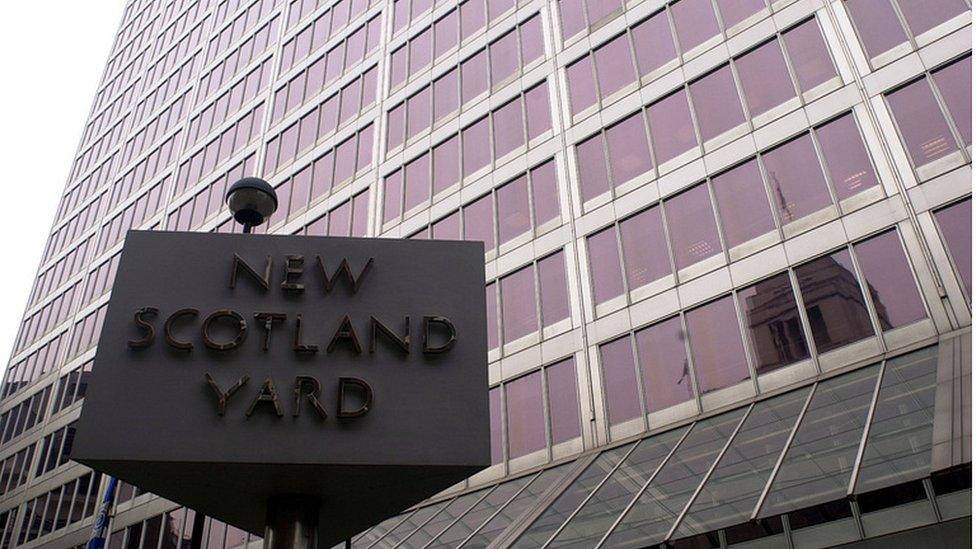Undercover police denied automatic anonymity at inquiry
- Published
Former girlfriend: ‘We talked about spending the rest of our lives together’
Undercover police officers facing claims of wrongdoing will not automatically get anonymity at a forthcoming major public inquiry.
Sir Christopher Pitchford, the inquiry's chairman, said he recognised the public interest in proceedings being "as open as possible".
The senior judge said he would assess each anonymity request individually.
The Metropolitan Police has already asked for large parts of the investigation to be in private.
Campaigners who say they were wronged during operations dating back decades are calling for maximum disclosure.
They include women who did not realise their partners were undercover officers, and a long list of social justice campaigners who are trying to establish whether they were unfairly monitored.
The preliminary ruling means that there will be no blanket restrictions on material relating to undercover operations being disclosed if Sir Christopher rules the public interest lies in disclosing them.
'Irreconcilable' arguments
Some 33 individuals, nine of them former undercover police officers, have already asked for anonymity.
Scotland Yard, backed by the government, has also argued it should not be forced to admit to the existence of some operations.

Who has asked for anonymity?
Former undercover police officers known only as N15, N16, N26, N519, N58, N81, N123
Two further former officers already named have asked for some restrictions to protect their family life
Various people who say they were a victim of undercover policing, including women who had relationships with officers


Scotland Yard has asked for significant restrictions
In an 85-page ruling, external, Sir Christopher says that the inquiry will have to grapple with seemingly "irreconcilable" arguments over whether the public interest lies in keeping sensitive police information secret and protecting the true identities of former undercover officers - or in disclosing past events because of public concerns.
"The starting point is that no restriction order will be made, in the public interest of openness in the Inquiry and its proceedings, unless it is necessary in the countervailing public interest of the protection of individuals from harm and/or effective policing," says the ruling.
"It is not possible to state at the level of principle or generality where the public interest balance will rest.
"The Chairman will approach evaluation on a case-by-case basis according to the nature and quality of evidence received in support of the application."
'Drag it out' fears
One woman who was deceived into an undercover relationship, known only as "Lisa", said she was not optimistic that the ruling would lead to the truth coming out - saying she feared the inquiry had failed to recognise there was a duty to reveal the truth to people who had been victims.
"I'm glad that they have not been allowed to have blanket anonymity," she told the BBC.
"But my biggest fear is that the police will be able to drag this out.
"They won't give up a single piece of information without applying for restriction orders.
"It took four-and-a-half years for me to get an apology in my case."
The ruling stresses that police officers who want to remain anonymous will have to provide evidence of the possible harm they could be exposed to, if named in public.
This would have to include evidence about the nature or gravity of the risk an individual would face and complex arguments about whether naming someone would breach their human rights.
Similarly, forces will have to show how disclosure of operational details would cause damage to undercover policing.
The Metropolitan Police, backed by other police chiefs and government, had argued that it should be allowed simply to "neither confirm nor deny" details of operations.
Sir Christopher must now start assessing the 33 current applications for publicity restrictions and whether any of them need to be backed up by further evidence.
In June, Sir Christopher will also begin considering if the state must be forced to tell parents of dead children that their child's identity was used to create fake personas for undercover officers.
- Published24 October 2014
- Published20 November 2015